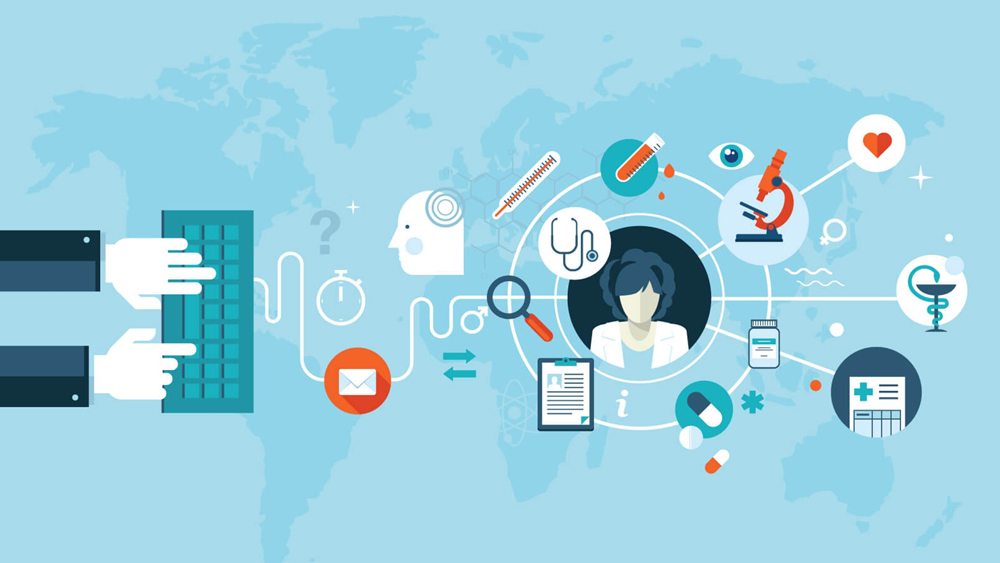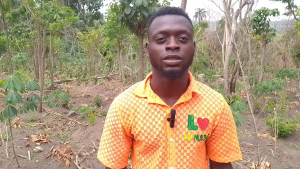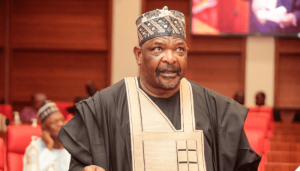Non-State Actors’ Innovations for Fiscal Responsibility in Safeguarding Nigeria’s Health Security
By Adeyemi Adekunle

The arrival of COVID-19 in 2020 saw the Nigerian health sector awaken. Before that, the public health sector and basic healthcare resources were retroflexed and superannuated, with many not being able to embrace the current realities of rapidly evolving health technologies. With the COVID-19 task force operations, many issues on development, recovery, and the impact of technology were addressed; hence, the increasing push for the growth of technological innovations in the country becomes prioritized.
Four years down the road to a robust health system, Nigeria faces a myriad of challenges, from inadequate infrastructure to insufficient funding. Amidst these, Non-State Actors (NSAs) have not only risen as vital catalysts but are also changing the terrain, championing the cause of budget accountability and safeguarding health security.
In Nigeria, where public health challenges often intersect with fiscal constraints, a cohort of non-state actors has emerged as pivotal players in ensuring fiscal responsibility and safeguarding the nation’s health security. Amidst the complexities of governance and resource allocation, entities such as Udeme, Budgit, Tracka, and ICIR have become beacons of innovation, accountability, and transparency. Their collective efforts not only highlight the shortcomings of traditional governance structures but also offer tangible solutions to bridge the gap between policy formulation and implementation. Through their initiatives, these non-state actors are reshaping Nigeria’s healthcare landscape, empowering citizens, and demanding accountability from public officials.
Udeme: Revolutionizing Healthcare Accessibility

Udeme, a prominent media accountability organization, has been a leading force in the fight for accessible healthcare in Nigeria. With a deep understanding of the vast disparities in healthcare provision across the country, Udeme has been employing innovative strategies to bridge the gap and bring quality healthcare services to underserved communities.
Leveraging technology, Udeme has developed innovative solutions that reach remote areas, delivering crucial healthcare news based on budget accountability to communities that would otherwise have limited access to such information. By partnering with local healthcare providers and international organizations, Udeme has ensured that even the most marginalized populations receive quality care.
Moreover, Udeme’s advocacy for increased budgetary allocations to healthcare has catalyzed positive changes in government policy, amplifying the voices of those often overlooked. Through this advocacy, Udeme has been able to push for policies that prioritize healthcare and ensure that funds are allocated accordingly.
Udeme’s tireless efforts have not gone unnoticed. Its innovative approach to healthcare provision has been a game-changer for many communities, and the impact of its work has been felt far and wide.
Budgit: A Champion for Fiscal Responsibility and Citizen Engagement in Nigeria
In Nigeria, where government spending has long been shrouded in obscurity, the emergence of Budgit has been nothing short of a revelation. The non-profit organization has become a trailblazer in promoting fiscal accountability and transparency in the country, particularly in the areas of government expenditures and healthcare budgets.
Budgit’s mission is simple yet powerful: it seeks to demystify complex budgetary allocations and make them accessible to the average citizen. The organization has achieved this through the use of innovative user-friendly platforms and data visualization tools that present budgetary information in a clear and concise manner.
The fruits of Budgit’s labor have been significant. By analyzing budgetary trends and expenditures, the organization has been able to hold public officials accountable for their actions, advocating for prudent fiscal management and increased transparency across the board. This is especially important in a country like Nigeria, where corruption and lack of transparency in government spending have been endemic for decades.
Tracka: Empowering Communities through Civic Engagement
Tracka is a civic engagement organization in Nigeria that has brought about a revolution in public accountability. One of the key areas that Tracka focuses on is healthcare infrastructure development. Through its grassroots mobilization efforts, Tracka empowers communities to take charge of monitoring government projects related to healthcare infrastructure development.
One of the ways that Tracka empowers citizens is through training and tools for effective project tracking. By providing these resources, Tracka enables citizens to hold public officials accountable for the timely and quality execution of healthcare projects. This has resulted in increased transparency and accountability in the healthcare sector in Nigeria. In addition to providing training and tools, Tracka also uses real-time reporting and advocacy campaigns to amplify the voices of communities. By doing so, Tracka ensures that the needs of communities are prioritized in government agendas, leading to more efficient and effective healthcare service delivery.
The impact of Tracka’s work in healthcare infrastructure development has been significant. It has become a catalyst for positive change, driving increased efficiency and accountability in healthcare service delivery in Nigeria. This has led to improved healthcare outcomes for communities and a more engaged citizenry that is invested in the development of their country.
ICIR: Using Investigative Journalism for Accountability
The role of investigative journalism in holding those in power accountable cannot be overstated. In Nigeria, the International Centre for Investigative Reporting (ICIR) is at the forefront of this mission, fearlessly shedding light on corruption and inefficiencies within the country’s healthcare system.
Through rigorous investigations and data-driven reporting, ICIR has exposed systemic issues that threaten the fiscal responsibility and health security of Nigerians. From mismanagement of funds to inadequate equipment and facilities, the organization’s work has brought to light the deep-seated problems that plague the healthcare system of Africa’s most populous country.
However, ICIR’s impact extends beyond mere exposure. By holding public officials and institutions accountable for their actions, ICIR is driving positive change and promoting transparency in governance. Its investigations have led to policy reforms and institutional improvements, making a tangible difference in the lives of Nigerians.
The Health Reform Foundation of Nigeria (HERFON): A leading voice in Policy Reforms
The Health Reform Foundation of Nigeria (HERFON) has emerged as a leading voice in the fight for policy reforms and increased health budget allocations in Nigeria. Through its tireless advocacy efforts, HERFON has become a beacon of hope for those seeking to improve the country’s healthcare system.
In an interview with Dr. Akinwumi Adesina, Aformer Minister of Agriculture and current President of the African Development Bank, he praised HERFON for its work in advocating for change. “HERFON’s efforts to push for policy reforms and increased health budget allocations are critical in improving Nigeria’s healthcare system,” Adesina said. “Their voice is a clarion call for action and must be heeded by those in power.”
HERFON’s work is a testament to the power of advocacy in driving positive change. Through its tireless efforts, the organization has become a leading voice in the fight for a better healthcare system in Nigeria. As the country continues to grapple with the challenges of providing affordable and accessible healthcare, HERFON’s advocacy efforts will undoubtedly play a crucial role in shaping the future of healthcare in Nigeria.
The PharmAccess Foundation: Seeking to Improved Health security
The PharmAccess Foundation has been making strides in improving healthcare access in Nigeria through innovative financing models and health insurance. Founded in 2007, the organization has been a driving force behind the transformative power of financial inclusion, ensuring that quality healthcare is not a privilege but a right for all Nigerians.
Nigeria is a country with a population of over 200 million people, and over 60% of the population lives in poverty. The country’s healthcare system has been plagued by a lack of infrastructure, a shortage of medical personnel, and inadequate funding. In the face of these challenges, the PharmAccess Foundation has taken a pragmatic approach to improving healthcare access in Nigeria.
The foundation has launched several initiatives to improve healthcare access, including the Medical Credit Fund and the Health Insurance Fund. The Medical Credit Fund provides loans to healthcare providers, such as clinics and hospitals, enabling them to expand their services and improve the quality of care they offer. The Health Insurance Fund, on the other hand, provides affordable health insurance to low-income families, making quality healthcare accessible to those who would otherwise not be able to afford it.
One of the foundation’s most successful initiatives has been the SafeCare program. This program provides a framework for quality improvement in healthcare facilities, ensuring that patients receive safe, effective, and patient-centered care. The program has been implemented in over 750 healthcare facilities in Nigeria, and has been instrumental in improving the quality of care that patients receive.
The Partnership for Maternal, Newborn, & Child Health (PMNCH):Given strategic hope for vulnerable

The Partnership for Maternal, Newborn, & Child Health (PMNCH) is a beacon of hope for the world’s most vulnerable. Bringing together a diverse group of stakeholders, the organization is dedicated to advocating for accountable health financing, particularly for mothers and children.
Healthcare financing is a critical issue across the globe, as many nations struggle to provide adequate medical care to their citizens. For those in low-income countries, the situation is particularly dire. In such regions, women and children are at a heightened risk of mortality due to preventable diseases and inadequate healthcare access.
Recognizing the urgent need for action, PMNCH has made it their mission to unite global leaders and advocates in the fight for equitable healthcare financing. Since its inception in 2005, the organization has brought together over 1,000 partners from various sectors, including governments, civil society organizations, and the private sector.
Pathfinder International Nigeria: Improving reproductive Access
Pathfinder International Nigeria is a non-profit organization that has been working tirelessly to improve access to reproductive health and family planning services in Nigeria. The organization’s mission is to empower individuals to make informed choices about their reproductive health, and their work is having a profound impact on the country’s demographic landscape.
Pathfinder International Nigeria places a strong emphasis on financial accountability, which is a key component of their mission. They believe that by ensuring financial transparency and responsibility, they are able to maximize the impact of their programs and services. In addition to reproductive health and family planning, Pathfinder International Nigeria also works to improve maternal and child health, prevent the spread of HIV and other sexually transmitted infections, and promote gender equity and social justice.
One of the ways that Pathfinder International Nigeria is able to make a difference is through their community-based approach. The organization works closely with local communities to understand their needs and priorities, and then designs programs and services that are tailored to those needs. This approach ensures that the organization’s work is culturally sensitive and responsive to the unique challenges faced by each community.
Clinton Health Access Initiative (CHAI): Creating Health financing Mechanism
The Clinton Health Access Initiative (CHAI) has made significant strides in Nigeria’s health sector, with a focus on strengthening health systems and improving financing mechanisms to ensure greater accountability. The organization’s expertise has proven to be an invaluable asset in the quest for a more resilient health sector.
CHAI’s efforts in Nigeria have been instrumental in improving access to healthcare services for vulnerable communities. By working closely with the Nigerian government and other partners, CHAI has been able to support the development of sustainable health systems that prioritize the needs of the people.
One of CHAI’s primary objectives in Nigeria is to ensure that health financing mechanisms are transparent and accountable. This has been achieved through the implementation of innovative solutions that leverage technology and data to track health spending. CHAI’s approach to health financing has been widely recognized for its effectiveness, and has been replicated in other countries across the world.
CODE: Change the narrative of Health Accountability
Organizations such as CODE’s “Follow the Money” are leading the charge in empowering communities to monitor and report on the implementation of health projects, thereby ensuring that funds reach their intended destinations.
The importance of such initiatives cannot be overstated. In many parts of the world, particularly in low- and middle-income countries, the health sector is often plagued by corruption and mismanagement. As a result, much-needed resources are diverted away from their intended purpose, leaving vulnerable communities without access to essential health services.
CODE’s “Follow the Money” program aims to tackle this problem head-on by equipping communities with the tools and knowledge they need to hold their governments accountable. Through a combination of training, advocacy, and grassroots mobilization, the program empowers citizens to track the flow of funds from the initial allocation to the final delivery of services.
The impact of “Follow the Money” has been significant. Since its inception in 2010, the program has helped to identify and address a range of issues affecting the health sector in Nigeria and other countries. For example, in 2017, the program uncovered a case of fraud in which a contractor had been paid $3.7 million to supply medical equipment to a hospital, but had failed to deliver the items. Thanks to the vigilance of “Follow the Money” activists, the contractor was brought to justice, and the funds were recovered.
Inspiring stories from non-state actors (NSAs) Innovations in Nigeria’s health sector:
There have been remarkable impacts by organizations using the power of data analytics to bring a significant transformation in the healthcare industry. By carefully tracking health outcomes and resource allocation, organizations have been able to identify the gaps in service delivery and redirect the resources where they are required the most. The data-driven approach have also enabled them to collect a vast amount of data and analyze it to achieve significant improvements in patient care and system efficiency.
These organizations have also implemented advanced analytics tools and techniques to gather data from various sources such as electronic health records, claims data, patient surveys, and medical research. By analyzing this data, they have been able to develop a comprehensive understanding of the healthcare system’s strengths and weaknesses and identify opportunities for improvement.
Through data-driven approach has enabled them to make informed decisions about resource allocation, staffing, and patient care. They can now allocate resources to the areas that need them the most, such as underserved communities, and allocate staff based on patient needs. This approach has resulted in an increase in patient satisfaction and a decrease in wait times, resulting in an overall improvement in system efficiency.
Organization’s data-driven approach has revolutionized the healthcare industry by providing a comprehensive understanding of the healthcare system’s challenges and opportunities. This approach has led to remarkable improvements in patient care and system efficiency, making healthcare more accessible to those who need it the most.
Rowing in the midst of Challenges
Non-State Actors (NSAs) in Nigeria’s health sector have faced and overcome a multitude of challenges, which have only strengthened their resolve and sharpened their strategies. Many NSAs have grappled with the effects of political instability and corruption, which can derail health initiatives and divert resources away from those in need. Despite these obstacles, organizations have persevered, implementing robust accountability measures and advocating for transparency in health financing
The limited capacity of institutions and an unstable economy have often meant that NSAs must operate in environments where resources are scarce and support is inconsistent. To combat this, they’ve built partnerships and sought international collaborations to bolster their efforts and ensure the sustainability of their programs.
The challenge of fragmented governance has required NSAs to navigate complex bureaucratic systems to implement their health programs. By fostering dialogue and cooperation among various stakeholders, they’ve managed to create more cohesive frameworks for action.
A reliance on donor funding has made some NSAs vulnerable to shifts in international aid policies. To address this, they’ve diversified their funding sources and developed income-generating activities to reduce dependency³.
Charging forward for great days ahead
In Nigeria, Non-State Actors (NSAs) in the health sector collaborate through various mechanisms to address common challenges, such as improving health service delivery, enhancing budget accountability, and strengthening health systems. NSAs are engaging in PPPs with the government to leverage the strengths of both sectors. This collaboration takes many forms, from infrastructure development to service provision, and is guided by policies that aim to mobilize resources for the population’s benefit.
During crises like the COVID-19 pandemic, NSAs came together with governmental authorities, UN agencies, and other partners to form a unified response. This approach ensures that all relevant sectors are involved in boosting testing capacity and addressing the humanitarian needs of affected populations.
NSAs align their efforts through joint frameworks that outline a whole-of-society approach. These strategies are bringing together various stakeholders to work towards common goals, such as advancing the public health agenda and supporting member states’ efforts.
Organizations collaborate by sharing knowledge and resources to build capacity. They conduct joint training programs, workshops, and conferences to enhance the skills of health workers and improve organizational management.
This report was produced under the Nigeria Health Watch, Prevent Epidemic and Response Funding Fellowship 2024

A Nigerian trained investigative journalist, who cover various news beats in Nigeria.









